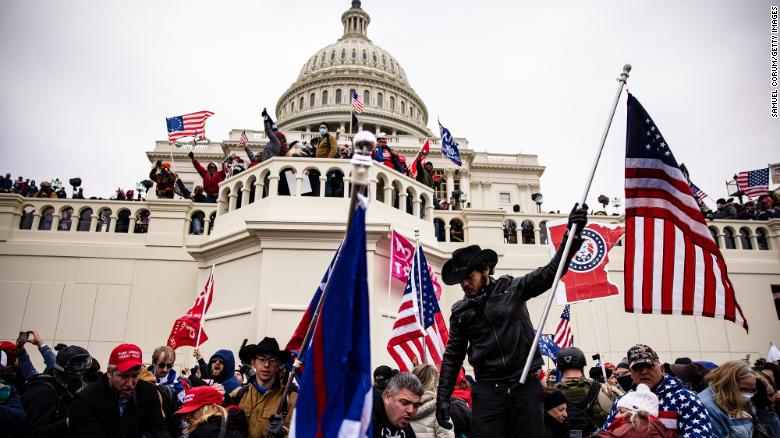Political Compromises and the Coup Attempt

I wanted to highlight this excellent essay by the historian of slavery and colleague of mine Marcus Nevius, talking about how the long history of refusal by politicians to confront the nation’s racist history, including the constant willingness of politicians to compromise their principles, creates violent points like the coup attempt.
His successor, Millard Fillmore, endorsed Clay’s efforts to engineer another compromise in Congress. The omnibus bill that Clay proposed featured several crucial measures. Adopted by Congress, the bill admitted California to the Union as a free state; abolished slavery in Washington, D.C.; organized the territory ceded to the U.S. by Texas as the New Mexico and Utah territories, with no prescription for slavery in either territory; implicitly endorsed the principle of popular sovereignty in those territories (which only fanned the frenzy to establish more slave states); and passed a strengthened federal Fugitive Slave act that antagonized another generation of Black Americans who sought freedom.
The U.S. Civil War (1861-1865) erupted after a decade of failed compromise attempts in the 1850s. Southern firebrands who vociferously defended slavery—and sought to maintain it in perpetuity—cited the Compromise of 1850 as precedent. They also balked at the rise of a new political party, the Republican Party (distinctly different from today’s), that drew together a coalition of disparate political interest groups and platforms, and that constructed as a central plank a resistance to the expansion of slavery into territories where it had not yet been established. That party nominated as its presidential candidate in 1860 an astute politician named Abraham Lincoln. Soon after Lincoln was elected, South Carolina seceded from the Union in protest of political compromises that its delegation believed no longer served the state’s interest in protecting slavery. In early 1861, ten more states followed South Carolina’s lead, and together, formed the Confederate States of America. As the historian Aaron R. Hall noted in the Journal of Southern History, that new nation re-envisioned the U.S. Constitution to encode explicit protections for slavery in its own constitution.
The January 6 mob violated the core principles of protest enshrined in the very Constitution they claimed animated their “protest.” As I have commented in The Scholarly Kitchen, the mob did not storm the Capitol. It did not breach the building. To say either is to imbue the mob’s actions with the connotations of protest, of action for a valiant cause. To do that is to validate the very rhetoric that animated the mob, which believed it was disrupting an “illegal” (read: legitimate) process of confirming the votes that the states submitted to Congress by way of the Electoral College.
Set into historical context, the lessons of January 6, 2021, are all too clear. Political compromises from 1787 to 1850 did not save the nation from Civil War. Postbellum political compromises did even less to quell the nation’s sordid racial history. The truth, as scholars of many stripes know all too well, is that what we observed on January 6 was a resurgence of the politics of hatred, borne of the nation’s original sin—slavery. The mob’s actions serve as a poignant warning that, as yet, we have much with which to reckon.
To criticize political compromise is not to reject wholesale the value of meaningful agreement. History’s objective lessons demonstrate, however, that meaningless compromise—compromise with the goal of maintaining a morally corrupt present—accomplishes little more than kicking the proverbial can down the road. With these lessons in mind, we should demand that the ringleaders of the January 6 mob be held to account to the fullest extent of the law.
This month, the U.S. Senate tried the former president according to Senate rules, triggered by the U.S. House’s vote to impeach. Senators who voted to convict in good conscience attended to far more than the extraordinary business of a second impeachment trial for a President who left office. Such Senators registered a voice of reconciliation for the wounds reopened by the Capitol insurrection, amplified yet again the nation’s longstanding politics of racial hatred.


